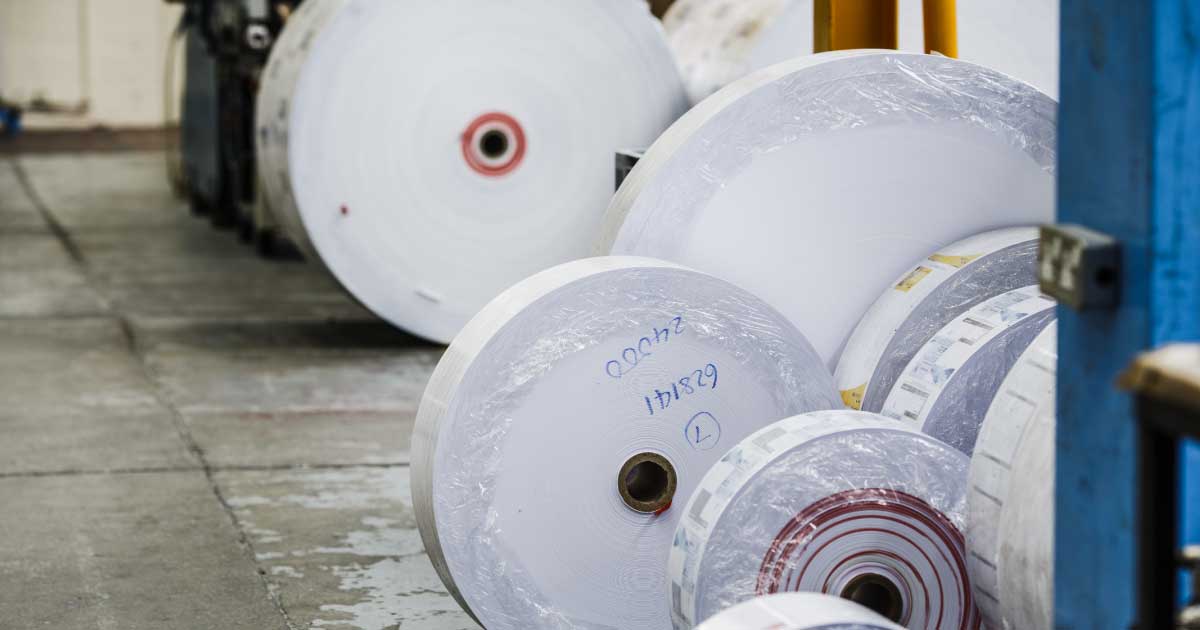On Sunday 31st October to Friday 12th November 2021, the United Nations hosted the Climate Change Conference of the Parties (COP26) in Glasgow. 30,000 delegates attended, with the summit aiming to bring the world together to encourage countries to take action to keep global temperature rise below 1.5 degrees in this century and limit further climate change.
Climate change has been extremely topical for a long time, but this summit further enforced how relevant it is and highlighted how important it is we act upon it. COP26 brought with it some stark statistics about the impact we’re having on our planet, such as:
We’re using about 60% more of the earth’s resources than it can regenerate every year. At this rate, with an increased global population and a resulting rise in consumption, we could need 3 Earths by 2050.
Today the world produces over 2 billion tonnes of solid waste, and that’s expected to grow to 3.4 billion tonnes by 2050. About one-third of that waste is not managed properly. By volume, global waste includes 44% food and organics, 17% paper and 12% plastic - all valuable commodities.
45% of emissions are caused by how we produce clothes, food, cars and other products.
Many of these statistics are driven by actions that everyday people and businesses take, which is why day 5 of the summit focused on ways the public and businesses can engage in climate action and feel empowered to make a difference.
Businesses play an important part in reducing our impact on the environment. Since 1970 carbon emissions have increased by around 90% and over 70% of this is from businesses. This clearly highlights how much of an impact businesses have on the environment and further enforces the notion that because they are such a huge part of the problem, businesses must become part of the solution.
In recent years, many companies have put various initiatives in place in order to tackle this, but are all businesses genuinely doing their best?
‘Greenwashing’ is a fairly new term that is being talked about more and more. It is the process of providing false or misleading information about how a company’s products are environmentally sound. Companies who partake in greenwashing deceptively persuade the public that their products, aims and policies are environmentally friendly when in reality, they are not.
An example of this is the Volkswagen Group, which admitted to cheating emissions tests with “defective” devices that could detect when a car was undergoing an emissions test and then altered the performance to temporarily reduce the emissions level.
Another example is McDonald’s, which switched to paper straws, however, the new paper straws can't be recycled due to the UK's recycling infrastructure. L’Oreal also was caught mislabelling its products and marketing them as vegan-friendly despite the brand testing on animals.
Several companies, big and small, have been identified to be greenwashing and called out on their actions. But how can consumers spot it?
Greenwashing can be difficult to spot, although the biggest giveaway is if a brand has no supporting evidence to back up its claims. Brands like this will have little to no information regarding their policies on their website and it will be difficult to get this information if you were to ask for it.
Other ways you can identify greenwashing include:
See-through green imagery - Classic greenwashing involves companies going overboard in expressing the fact that they are ‘green’. This includes a lot of green imagery being used on products, however, most eco-friendly brands have more simple packaging.
Look for genuine certifications - Look out for the official vegan logo, the non-tested on animals logo and things like the FSC logo on paper. You can also look out for companies with environmental accreditations such as ISO 14001 Environmental Management, which ensures that companies are working within an audited environmental management system and have a genuine policy for continual improvement.
Check websites and socials - If their website or socials are vague about their environmental impact, then it’s likely they’re not doing as much as they say.
A truly ethical, eco-friendly and sustainable brand will have detailed information of its practices, processes and initiatives and will be happy to share this information. But what is sustainability and how can companies be truly sustainable?
The official definition of sustainability is ‘the avoidance of the depletion of natural resources in order to maintain an ecological balance’ (Google, 2021). At its core, sustainability is all about ensuring that everything we do now will enable us to exist in the future. It’s about bettering ourselves, being innovative, improving how we’re using resources and being informed on how we can work towards a more sustainable future.
A sustainable business is one that generates profit while improving societal and environmental conditions through business practice that is economically viable, socially responsible and environmentally friendly. Corporations that include these elements as core aspects in their growth strategy very often create sustainable economic values.
Through a combination of science and the internet, we now have a wider understanding of the effects that our day-to-day lives have on our planet. In the past 100 years, our population has increased from 1.5 billion to 6.1 billion, carbon emissions have increased by around 90% and the 20 warmest years on record have been in the past 24 years.
This means that sustainability is now something that is highly important to consumers, with research completed by IBM in 2020 showing that nearly 80% of respondents indicated sustainability is an important factor to them when making a purchasing decision.
Whether it’s through customers, clients or stakeholders, somebody will be starting to ask questions about the sustainability of your business. Those questions, if you’re not ready for them, have the potential to limit your future growth.
Successful business practice is all about understanding the needs of your customers and adapting to ensure that you are consistently able to meet them and with sustainability being one of the biggest desirables in history, there is no choice but to adapt. If businesses aren’t sustainable in this day and age, they simply won’t succeed.
Statistics highlight the importance of sustainability for consumers, as a Deloitte study (2020) showed 28% of consumers have stopped buying certain products due to ethical or environmental concerns and a RecyclingLives study revealed that 81% of people are more likely to buy from sustainable sellers.
Many companies adopt a Corporate Social Responsibility strategy that enables them to reduce their carbon footprint by participating in various initiatives designed for this purpose. CSR allows businesses to demonstrate their values, engage their employees and communicate with the public about how they operate and the choices they make, to ensure a sustainable future.
Creating a CSR scheme means that businesses have something to aim towards and have a set of standards that they can be held accountable for, which in turn, means that they’re more likely to be met.
From small businesses to big corporations, every company has a responsibility when it comes to its social impact.
As well as the benefits to the environment, there are also many benefits that come with having a CSR strategy for businesses:
Improves brand awareness - Customers build the brand equity of a socially responsible company by enhancing its future profits and goodwill, meaning CSR activities can positively improve a company’s reputation.
Improves public image - CSR not only creates brand awareness among consumers but also leads to a positive brand image in the minds of potential consumers. Brands must be inspirational in a socially responsible way to their stakeholders in order to keep them engaged and invested, resulting in many companies adopting CSR schemes.
Improves loyalty - Brands who increase their efforts on lowering their carbon footprint are more likely to gain respect from their customers, which in turn will lead to a higher chance of them remaining loyal to the brand.
Encourages positive growth - There is simply nothing negative about a company working on its environmental impact, so having a CSR in place to assist with this will only encourage positive growth for a business.
Attract the right employees - 65% of a Reuters Event survey (2020) said that they were more likely to work for a company with strong environmental policies.
For many years CFH Docmail has been working to support the communities in which we operate in, as well as working with local organisations to better understand how we can have a positive impact on the environment. As a result of this, we actively try to reduce our carbon footprint as a company so that we can help better protect the environment and be a more sustainable business.
To give you an idea of the kind of practices businesses can partake in with regard to CSR, we thought we would share some of the initiatives we have here at CFH Docmail:
Planting trees
Over the last 20 years, we’ve planted over 115,000 indigenous trees, on land that can’t be developed, to help offset the paper we use.
Solar energy
We run 400 kW solar roof panels at our Somerset site which in the summer provides all of the electricity required to run this site.
Recycling Zero waste to landfill policy
Waste to landfill has been eliminated as far as practically possible with all recyclable waste being recycled and our general waste sent for incineration to produce energy. All general waste is secondarily sorted and recycled wherever possible.
Power saving
When in the office, we encourage our staff to save power by switching off lights and power outlets when they are not required.
Research
Working alongside the University of The West of England, our white papers have been published nationally and share best practice policies on how companies can reduce their carbon footprint while delivering savings straight to their bottom line.
If you’re interested in reading the White Paper, please email marketing@cfh.com and we will send over a copy to you.
Certified
We are FSC® certified (FSC®C006025), PEFC and ISO 14001 certified for our environment management systems to ensure every sheet of paper we use supports responsible/sustainable forestry. We are also audited every year to ensure that we maintain these certifications.
When it comes to different types of communications, there is a lot of misunderstanding about sustainability (read our ‘Is paper eco-friendly?’ blog here) and the impact on the environment. At CFH we have recognised for many years how important it is for us to actively do all we can to reduce this, and we are proud of our accreditations.
Climate change isn’t something that can wait. It’s needed now and it’s needed fast. By simply understanding why it matters, beginning to think about how a company can start to become more sustainable and considering what elements could be involved in a Corporate Social Responsibility scheme, companies will already be one step ahead with creating a future-proof business, whilst also protecting our planet.
Click HERE to find out how CFH Docmail can help your communications be more sustainable.







